
The Darrell McClain show
Independent media that won't reinforce tribalism. We have one Planet; nobody's leaving, so let’s reason together!! Darrell McClain is a Military veteran with an abnormal interest in politics, economics, religion, philosophy, science, and literature. He's the author of Faith and the Ballot: A Christian's Guide to Voting, Unity, and Witness in Divided Times. Darrell is a certified Counselor. He focuses primarily on relationships, grief, addiction, and PTSD. He was born and raised in Jacksonville, FL, and went to Edward H white High School, where he wrestled under Coach Jermy Smith and The Late Brian Gilbert. He was a team wrestling captain, District champion, and an NHSCA All-American in freestyle Wrestling. He received a wrestling scholarship from Waldorf University in Forest City, Iowa. After a short period, he decided he no longer wanted to cut weight, effectively ending his college wrestling journey. Darrell McClain is an Ordained Pastor under the Universal Life Church and remains in good standing, as well as a Minister with American Marriage Ministries. He's a Believer in The Doctrines of Grace, Also Known as Calvinism. He joined the United States Navy in 2008 and was A Master at Arms (military police officer). He was awarded several medals while on active duty, including an Expeditionary Combat Medal, a Global War on Terror Medal, a National Defense Medal, a Korean Defense Medal, and multiple Navy Achievement Medals. While in the Navy, he also served as the assistant wrestling coach at Robert E. Lee High School. He's a Black Belt in Brazilian Jiu-Jitsu under 6th-degree black belt Gustavo Machado. Darrell Trains At Gustavo Machado Norfolk under the 4th-degree black belt and Former Marine Professor Mark Sausser. He studied psychology at American Military University and criminal justice at ECPI University.
The Darrell McClain show
Democratic Divisions, Presidential Immunity, and Christian Controversies
Can the Democratic Party reconcile its internal conflicts over the Israel-Palestine issue, or will it continue to divide its base? On today's episode of the Darrell McClain Show, we tackle the high-stakes primary battle in New York's 16th congressional district between Rep. Jamal Bowman and George Latimer. You'll hear about the intense campaigns from pro-Israel groups and so-called centrist Democrats aiming to unseat Bowman, contrasted with the robust support he receives from progressive icons like Bernie Sanders and Alexandria Ocasio-Cortez. We also dive into the drama of internal party tensions, including Bowman's public disputes with fellow Democrats like Richie Torres.
Should former presidents have lifelong immunity from prosecution? We address this provocative question head-on, examining the legal and constitutional debates surrounding former President Trump's claims of presidential immunity. Insights from notable legal figures, such as Justice Ketanji Brown-Jackson and US District Judge Tanya Chutkin, shed light on this complex issue. Plus, we explore the potential Supreme Court decisions that could reshape the legal landscape. The episode also highlights the contentious new law in Louisiana mandating the display of the Ten Commandments in public classrooms, and the ensuing clash between civil liberties groups and the law's proponents, including former President Trump.
Is the Christian Coalition's agenda truly aligned with biblical teachings? We critically examine the Coalition's political priorities, contrasting them with the core messages of the gospel. By looking at scriptures like First Corinthians 16:22 and First Timothy 4:8, we emphasize that true salvation comes from a relationship with Christ, not from political activism. We challenge the notion that morality alone can bring divine blessings, urging Christians to prioritize spreading the gospel over getting entangled in politics. Join us for a thought-provoking discussion that underscores the importance of making faith in Christ the central mission of believers.
Welcome to the Darrell McLean Show. I'm your host, darrell McLean. Today is 6-24 of 2024. It is a Monday. You're listening to episode 411, independent Media that Won't Reinforce Tribalism. We have one planet. Nobody is leaving. Let us reason together.
Speaker 1:Let's jump right into a bit of some politics. We're going to start off with Jamal Bowman, as he is in the fight for his political life in the high stakes political primary that is going on in the state of New York. So Rep Jamal Bowman is fighting for political survival in the ugliest Democratic primary of the cycle, as his political future and the party's progressive power hangs in the balance. The race for New York's 16th congressional district has actually pitted Bowman, a progressive, against a so-called centrist, george Latimer. Now, george Latimer, if you look him up, is not a centrist. He was actually somebody who even fought vigorously to slow walk desegregation legislation. But anyway he has the backing of high-profile figures like Hillary Clinton in an explosive and danger. After his criticism of Israel sparked an all in all effort to remove him from Congress, some are warning that this could be the end for the outspoken progressive lawmakers run in the House. He's super vulnerable, said a Democratic campaign strategist working to re-elect Bowman. He's not necessarily the most like internally, folks think that he's not going to win, the strategist added.
Speaker 1:Grimly, the Tuesday's primary has emerged as one of the 2024's biggest litmus tests on the topic of Israel and Palestine. Unlike other contests that have tested the strength of the leftist insurgencies against the establishment, the race for the Westchester County Bronx District is not being fought over the nuances in support for President Biden or even economic issues such as health care or education reform. Instead, this particular fight has centered around the conflict in the Middle East, after Hamas launched the attack in Israel on October 7 that killed nearly 1,000 Israeli civilians and sparking an Israeli response that has led to tens of thousands of Palestinian deaths. The conflict has actually happened to deepen a long-running split in the Democratic Party, where staunchly pro-Israel Democrats find themselves at odds with those on the left who are insistent at the mounting number of civilian deaths in the Gaza Strip. It's definitely become a big dividing line, said Sam Drismalaw, founder of Progressive Victory, a network of online content creators that hosted a rally for Bowman this past weekend. That hosted a rally for Bowman this past weekend. Israel-palestine has driven a lot of interest and energy, and the long-term implications of the race are far larger than just one issue. He added. Bowman's primary is emerging as the latest flashpoint in the inter-party debate around how the Democrats want to respond to Israel and Palestine.
Speaker 1:Now, while Lameter has snagged, you know, very few, if any at all, endorsements from Bowen's House colleagues. Some of them are openly criticizing the incumbent and have warned that they might vote. Some of them are openly criticizing the incumbent and have warned that they might vote, that they might wait until races the race on Tuesday as it inches closer Now. Rep Richie Torres, who represents the neighboring 15th District, got into a public spat with his fellow New Yorker after Bowen, during a podcast interview last week, said Torres was very calculated and tried to gain political power for himself towards an ultimate objective. When discussing his stance on Israel, torres shot back, suggesting an endorsement against the incumbent could be on the horizon. I have a general rule of not weighing in against a congressional Democrat who has not weighed in against me, he said in a statement, but Bowen's gratuitous attack on my character might cause me to rethink that rule. Stay tuned. Meanwhile, rep Debbie Wasserman Schultz, a Jewish Democrat from Florida, declined to take a stance in the New York race when asked about it on CNN last week, but did not shy away from bashing her house colleague on his position on Israel. All I'll say about the race is that it is terribly, terribly unacceptable that the rhetoric Jamal Bowen has used. He is engaged in anti-Semitic rhetoric. Washington Michelle said, claiming that he has engaged in conduct, has engaged in conduct on becoming a member of Congress and it's terribly unfortunate. His constituents will have to decide whether they want to return him to Congress, she added. On the other hand, fellow progressives like former Mondaire Jones, the Democrat from New York, did endorse Latimer, igniting a firestorm among left wing lawmakers and activists who saw it as an effort for Jones himself trying to reenter the halls of Congress in the 17th congressional district on Tuesday.
Speaker 1:The progressive coalition from Washington to New York City is playing defense, pulling out all stops to make sure Bowen survives the brutal uphill climb to secure a third term. Influential elected figures figureheads in Senator Bernie Sanders and Rep Alexandria Ocasio-Cortez in his corner, with a pair hosting a rally for him in the sweltering heat in the Bronx on Saturday. The Bronx is a place of significance to all three Democrats. Ocasio-cortez grew up there while Sanders was the first presidential candidate in decades to visit the area during his bid for president back in 2016. Now Bowen, a middle school principal in his past life, is counting on residents in the district to receive his surrogates warmly.
Speaker 1:Both leaders have framed the race in part as a fight against the influence of special interests in primary, specifically the spending from pro-Israel groups that have targeted lawmakers on both sides of the aisle over their stances on the war in Israel and Gaza. Now members of the left have long sought to push back against the influence of groups such as the American Israel Public Affairs Committee acronym known as AIPAC, which have poured millions of dollars into candidates as a part of the cause. The progressive efforts against AIPAC related to groups mirrors their years-long push for other form of corporate reform. Big money from APAC to Wall Street have poured millions to buy this election. Ocasio-cortez wrote in a post on the social media platform called X advertising the rally with Sanders. They have great influence.
Speaker 1:Bowman told the Night School podcast last week, and that is, of course, hosted by Dr Lamont Hill, mark Lamont Hill. He went on to argue that he has entered Congress in 2021 as a reliable supporter of Israel. His political future would look different If I came in on some tweeting in support of Israel all the time, like when I first got in my bank account. First of all would be flushed right the point where the left because I would be on the right, so the left would like not really want to challenge me because I would have a flush of bank account. He added. Progressive see the shattered financial records as a key indication of the interest in the race and the dynamics at play over Israel, noted that the race has seen over $23 million in spending and reservations, making it the most expensive House primary ever in American history. According to the Post on X United Democracy Project, apec's super PAC contributed the vast majority of that funding at just more than $14 million. Now, that's seven times the amount that Bowman's campaign spent.
Speaker 1:According to the tracker, that issue has been hugely galvanizing on a lot of different sides, including a huge amount of debate.
Speaker 1:Bowman, who has been fending off other scandals this term, from pulling a fire alarm in the House to apologize for saying allegations of rape of Israel women were a lie, has seen signs that this is standing is slipping with the voters over the past several months.
Speaker 1:As soon as I got the additional information from the UN, we condemned the sexual violence, we voted to condemn it and we were continuing to do the work, bowing to the WNYC this week. A poll from Emerson College taken earlier this month shows that Latimer, the Westchester County executive, was up significant 17 points over Bowman among likely voters, at a rare advantage for a lesser-known candidate challenging an incumbent. But the poll also found a large chunk of voters 21% were undecided. Another survey conducted by Melliman Group, which runs a Democratic majority for Israel Super PAC, shows that same 17-point figure. Bowman was one of the Democratic caucus's earliest supporters of a ceasefire, pushing for an end of the fighting when many in the party felt Israel had not adequately responded to the deadly attack on its civilians. As those calls amplified among other progressives in and out of Congress, bowen doubled down on his support.
Speaker 2:The Supreme Court agreed on Monday to consider a Tennessee law that bans certain medical treatments for transgender minors, the first time that justices will decide the constitutionality of such statewide bans. The move could have broad ramifications for the about 25 states that have enacted similar measures. It comes as a wave of Republican-led state legislatures have pushed to curtail transgender rights. Those efforts include legislation in recent years that targets gender transition care and laws that regulate other parts of life, including which bathrooms students and others can use and which sports teams they can play on. The justices will hear the case United States v Scrimmetti in its next term, which typically begins on the first Monday in October, though no date has been set yet for oral argument. The justices had considered whether to hear two challenges to transition care, including the Tennessee appeal and one centered on a Kentucky law, but had repeatedly postponed making a decision, suggesting there may have been debate over whether to do so. The court's decision to take up the case signals a willingness by at least some of the justices to delve into yet another polarizing social issue, even as they have yet to rule on some of the biggest cases for this term involving emergency abortion care, disinformation on social media and the scope of presidential power. The Biden administration had asked the justices to intervene after a federal appeals court upheld the ban. In Tennessee, the law prohibits three types of transgender medical care for minors puberty blockers, cross-sex hormones and gender transition surgeries. The administration has argued that the law violates the Equal Protection Clause of the 14th Amendment because it frames that prohibition in explicitly sex-based terms. Solicitor General Elizabeth B Prelogar, in the government's petition to the court, wrote that the law bans transgender medical care, but that Tennessee leaves the same treatments entirely unrestricted if they are prescribed for any other purpose. In his brief, the Attorney General for Tennessee, jonathan Scrimetti, claimed that the number of minors receiving medical treatment for gender dysphoria had risen sharply in recent years, prompting Tennessee and other states to respond by enacting laws designed to ensure that potentially irreversible sex transition interventions of uncertain benefit are not performed on minors who may not be able to fully grasp their lifelong consequences and risks. He added that such treatments carry serious and potentially irreversible side effects, including infertility, diminished bone density, sexual dysfunction, cardiovascular disease and cancer. The Biden administration pushed back strongly on this notion, pointing out that such treatment is rare and citing guidelines that medical interventions for transgender adolescents occur only in appropriate cases after the adolescent undergoes a comprehensive assessment to ensure that any intervention is medically necessary. The government's brief argued that overwhelming evidence showed that appropriate gender-affirming treatment with puberty blockers and hormones directly and substantially improves the physical and psychological well-being of transgender adolescents with gender dysphoria.
Speaker 2:This spring, the justices temporarily allowed Idaho to enforce a state ban that limited medical treatment for transgender youth. The law passed by the state's Republican-controlled legislature makes it a felony for doctors to provide transgender medical care for minors, including hormone treatment. The decision in that case, which came to the justices as an emergency application, appeared to split largely along ideological lines with the court's liberals. Descending Federal courts have splintered over laws aimed at blocking transition care, allowing the measures in some states and banning them in others, intensifying pressure on the Supreme Court to intervene.
Speaker 2:The Tennessee case traces back to November 2022, when a group of Tennessee legislators introduced a bill outlawing transgender care for minors. After the law went into effect in July 2023, a group of legal advocacy organizations, including the American Civil Liberties Union, the ACLU of Tennessee and Lambda Legal, sued the state, seeking to block the law. The groups brought the suit on behalf of Samantha and Brian Williams, a couple in Nashville, and their adolescent child, who is transgender, along with two other families and a doctor in Memphis, susan Lacey. The Kentucky law known as SB 150, bans doctors from providing gender transition surgery or administering puberty blockers or hormone therapy to people under 18. Puberty blockers or hormone therapy to people under 18. In June 2023, federal judges in both states, in separate rulings, temporarily blocked the laws, days before key parts of the laws were set to go into effect. Shortly after a divided panel on the US Court of Appeals for the Sixth Circuit overturned the lower court decision reinstating the bans, plaintiffs in Kentucky and Tennessee appealed to the Supreme Court.
Speaker 1:The nation is actually bracing for a high-stakes Supreme Court decision that could come as soon as this week on former President Trump's arguments that he is immune from prosecution as a former commander-in-chief. Now the case could have significant impact on former presidents may be held to account for any criminal actions that they take while in office, and it is among 14 cases. The court must still decide this term Now. While it's possible, the decision could be delayed until early July. A decision this week would fall as the first presidential debate is scheduled for Thursday and just weeks before the GOP's convention in Milwaukee. So what is the Supreme Court actually weighing? The case leaves the high court considering the extent of presidential immunity and if it can shield a former executive from conduct that was conducted during their time in office. Trump, during the April arguments, asked the court to embrace a sweeping immunity argument, asserting that a president has absolute immunity for official acts while in office and that that immunity applies after leaving office. He and his counsel argued that protections cover his efforts to prevent the transfer of power after he was declared to be losing and have lost the 2020 election. Now the special counsel, jack Smith, has argued that only sitting presidents enjoy immunity from criminal prosecution and that a broad scope that Trump proposes would give a free pass to all presidents, future and to come, and in the past I'm sorry, in the past for criminal conduct. So what are at stakes in this particular case?
Speaker 1:It seems unlikely that the court will take the case to the logical extreme. That ordering the assassination of the political rival could be covered by the presidential immunity act something trump seemed actually asserted in court would likely be protected. It's clear, though, that the justice is considered the far-reaching implications of broad immunity pushed by trump because during oral arguments now they posted, uh, hypotheticals are. You know about instances in which presidents take a bribe to appoint an ambassador or even sell nuclear secrets? I'm trying to understand what disincentivizes is from turning the Oval Office into a seat for criminal activity in the country. That question was posed by the Justice Ketanji Brown-Jackson. Trump's team had argued the only way a president could be prosecuted for crimes is if they were first tried convicted through impeachment proceedings. It's a reverse of the stance Trump's attorney took when he was actually facing impeachment over January 6th, arguing then that the matter should be left up to the justice system. It is more likely the court may seek to tease out a more nuanced approach, one which the former president can be prosecuted for private conduct while enjoying immunity on the actions considered core to their responsibilities in office. Now the question becomes, as we've been exploring here today a little bit, about how to segregate what we call private from official conduct that may or may not enjoy some immunity. Now that is from Justice Neil Gorsuch, one of the court's six conservative justices, and that was what he said back in April.
Speaker 1:Now lower courts were dismissive of Trump's arguments, with the former president losing two challenges related to this matter. Whatever immunities a sitting president may enjoy, the United States only one chief executive at a time, and that position does not confer a lifelong get-out-of-jail jail free pass. Former presidents enjoy no special conditions on their freedom of federal criminal liability. Now, this was from us district judge tanya chutkin, who is overseeing the case, and this was written in a decision back in december. Defendants four years service as a commander-in-chief did not bestow him to a divine right of kings to evade the criminal accountability that governors and governs his fellow citizens, she added in her decision. Now the district of columbia circuit court of appeals similarly rejected trump's challenge For the purpose of this criminal case. Former President Trump has become citizen Trump, with all of the defense of any other criminal defendant. The court determined through a three-judge panel.
Speaker 1:How will it impact Trump's January 6th prosecution six prosecution? Well, it seems likely that it is very unlikely that the justices would sideline any prosecution of trump, like the former president had asked. But depending on how the court uh parses the bounds of official actions, the decision could eat up considerably more court time. It's actually possible for the supreme court that they could carve out some immunity for a former president, while determining none of Trump's actions to stay in power could be considered an official act. But the court could also decide to remand the issue back to the lower court, providing guidance to Chutkin and asking her to reconsider whether any of trump's behavior fits their tests of what could? What constitutes presidential action deserving of immunity? If the the court goes that route, trump could appeal uh chuck his decision, which could have the potential to put the issue before the supreme court again.
Speaker 1:Now of the biggest question is how will it affect Trump's other cases? Trump has made similar arguments in other trials he's facing. Signing with Trump, even in a narrow ruling, could force courts to spend more time weighing in on the issue. That could actually benefit Trump, who has sought to delay his trials. If he wins the presidency, he could order the Department of Justice to drop the federal cases against him and if the court did agree with trump's broad take on immunity, it could up in his hush money conviction in manhattan, which he has pledged to appeal, as well as his ongoing prosecution for election interference in georgia in his mar-a-lago documents case of a prosecutions and prosecutors have argued presidential immunity has little bearing on that case. Prosecutors there argued that trump took the documents after leaving office, suggesting that the presidential immunity would not apply. But even beyond retaining the records, prosecutors note that other matters in the case happened well after trump was out of the oval office, including the concealing of the records from his attorney, as well as law enforcement, something he was able to do by directing his co-defendants to move boxes around his estate.
Speaker 1:Louisiana has kicked off a national fight with the Ten Commandments mandate. With the Ten Commandments mandate. So in Louisiana it has triggered a national controversy with a new law mandating the Ten Commandments be displayed in all public classrooms. The law, signed by the state's GOP governor, has been blasted by civil liberties group, which argue it infringes on the rights of students and blatantly ignores the separation of church and state. The issue will soon be headed to the courts with organizations such as the American Civil Liberties Union. So the ACLU saying they plan to sue the state and the governor, jeff Laundrie, vying to defend the law. It is also showing signs of becoming an interwining in national political races, with former President Trump embracing the law on the troop social posts.
Speaker 1:I love the Ten Commandments in public schools, private schools and many other places For that matter. Read it. How can we as a nation go wrong? Trump said. This may be, in fact, the first major step in the revival of religion which is desperately needed in our country, the former president added. It added the biblical poster in louisiana classroom must be large, easily readable, fought by the beginning of next year. The display will also include three paragraphs that explain the prominence of the ten commandments in american education history. We're thrilled to see the governor laundry signed the bill into law.
Speaker 1:We think it gets us back to more closely to the original intent of our founding fathers, said matt kraus, attorney for the first liberty institute since the 1980s. Kraus said the 10 commandments were allowed on schoolhouse walls. So we lived a lot more of our country's history, but the liability with the ability to do that we haven't. We feel like this is a good step forward, the kind of reintroduce, especially to our students, some of those founding principles our country, and we think this is great. Now, look, before I give my like opinion on this, I just want to say something that I think is somewhat interesting in the tell-all here. So he says, since the 1980s the 10 commandments were allowed on schoolhouse walls. So I'm gonna go ahead and tell you something, guys, the united states of america was not founded in 1980 and um, so that is just that the country was not founded in 1980, otherwise it would be a much younger country, because I was born in 1986. So this is a question of is this something the founding fathers would have wanted?
Speaker 1:I think that that would be a very debatable topic, especially when you have to wrestle with the fact that the founding father who most vigorously fought for what we now know as public schools would be Thomas Jefferson, who famously wrote the Virginia Statutes of Religious Freedom and whose some writings believe to portray Thomas Jefferson as not a Christian but a deist. So he believed that there was a God, but Thomas Jefferson, to everything that I've seen about him, did not believe that God intervened in human affairs. He somewhat believed that God created things and then just sat back and just let humans do whatever. But anyway the aclu is lost of louisiana branch. America is united for separation of church and state and the freedom from religious foundation announced immediately after the law was signed that they will go to court over the measure, which they say violates the first amendment, creating a unconstitutional religious coercion of students and making students feel unwelcome if they are not christian. It is a prime example of how christian nationalism is on the march across this country. It would force public school children of all religions to read the and venerate the state's preferred brand of christianity. This is a complete violation of church and state separation, said rachel lazar, president and ceo of american united for the separation of church and state.
Speaker 1:The crux of the argument could lie in the supreme court's decision to nullify the lemon test back in 2022. The standard first appeared in the 1971 Lemon v Kurtzman, when justices ruled that the government could not provide funding to non-secular schools without violating the Establishment Clause. In 1980, the high court took on the Stone v Graham case, where it ruled, based on the Lemon Test, that a Kentucky law requiring the Ten Commandments in schools was unconstitutional. But in 2022, kennedy v Bredmerstrand School District, the Supreme Court ruled in favor of a football coach who was fired for praying after games. The school had justified its decision by saying the coach was violating the Establishment Clause decision by saying the coach was violating the establishment clause. In the court's decision, the justice said in the place of the lemon and the endorsement test, the justice system now needs to interpret the establishment clause by reference to historical practices and understanding.
Speaker 1:Krauss said that it'd be hard to argue for anybody to argue that the ten commandments aren't a historical conditional part of american educational system american and that's why, in all likelihood, it would survive any kind of constitutional scrutiny. There's really not another document, religious or otherwise, that is in American history, in american history, he said, pointing to the reference to the text of the supreme court and the capitol, and adding it will be good for louisiana students to ask about the poster in classrooms says the teachers have a chance to go back into the history and the founding of america. But opponents of the law say the founding fathers would in fact be on their side. All of the sources make clear that the establishment clause was intended to prevent any sort of religious coercion or preference by the government or the government taking positions on religious issues. Lazer said Other red states could soon be trying to follow in Louisiana's footsteps. Neighboring Texas has previously looked at mandating the Ten Commandments in public classrooms, but it ran out of time in its legislative session classrooms but had run out of time in its legislative session. Texas would have been, and should have been, its first state in the nation to put take amendments back in the school said uh, governor, uh, so the lieutenant governor, uh, dan patrick, on thursday I'll pass the take commandments bill again out of the senate next session. He added later.
Speaker 1:Pointed to the laser, pointed to the Elazer, pointed to the instances in Republican-led states where she says there is a concerning trend of religious mixing, with taxpayer-funded schools including chaplains replacing school counselors, coaches praying with students and a push for religious charter schools. We don't need states turning public schools into Sunday schools. We need national recommitment to church-state separation. That's what protects everybody's freedom to live as themselves and believe as they choose. So as long as they don't do harm to others, she added.
Speaker 1:So let me put it this way and I'm going to keep this short and sweet. Before I go to our blast from the intellectual past that may or may not touch on this issue a bit, be warned, it will be religious in nature. If that's not your cup of tea, you can cut it off after. I give my short opinion. So my opinion is going to be very terse. If the Christian community want to put the Ten Commandments back in schools, I said go ahead Now.
Speaker 1:Your kids will know that God is deeply offended by stealing. They will know that God is deeply offended by coveting their neighbor's wife. They will know that God is deeply offended by adultery. They will know that God is deeply offended by adultery. They will know that God is deeply offended by lying. They will know that God is deeply offended by murder.
Speaker 1:And then your kids will look at you come this November and they will see who you are trying to vote for and you will have to ask them are you going to vote for someone who is a thief, who has a record of being a thief? Are you going to vote for someone who covets their neighbor's wife and their neighbor's goods? Are you going to vote for someone who commits adultery? Are you going to vote for someone who is a liar or who bears false witness. Are you going to vote for someone who is a murderer? Now, what I've just said condemns a lot of politicians. Does it condemn the one that you are planning to vote for? And if it does, I think you may want to pump the brakes on your Christian values in public, only because it just may expose you as being a hypocrite. Thank you for tuning in. I'll see you on the next episode.
Speaker 1:Stay tuned for our blast from the past Evangelicals today are being resented for the wrong reason. We're being resented for our efforts in the political arena.
Speaker 3:Efforts of societal morality, political power. This is why they accuse us of Christian nationalism, like trying to take over the government. An illustration of that in Washington DC there are currently in excess of 200 religious advocacy groups that have several thousand employees and spend about $400 million a year to lobby and advocate with politicians to gain a foothold for religion and morality. Now you could get lost in the sea of all of those groups, but let me just pick one out. A very significant group is called the Christian Coalition, and I looked them up just to see what their purpose was, and here's their agenda. I'll give you the list.
Speaker 3:One stop funding abortion Okay, I certainly agree with that. One stop funding abortion Okay, I certainly agree with that. Number two secure energy independence. I even like fossil fuels. God provided them.
Speaker 3:Three reform criminal justice. That would be good. People ought to be treated fairly. I don't know, I wouldn't want to be in a jury trial. Protect the environment Lots of luck with that. And finally, repeal Obamacare. So did you notice anything Christian about any of that? What is a Christian coalition? There's nothing Christian about any of those things. Oh and, by the way, they also said there were 300 other issues, so that would make 315, none of which is the only issue that Christians should be concerned about, which is what the gospel? If we're going to be resented, let's be resented for what we're supposed to be resented for.
Speaker 3:Now, look, I feel just the way any Christian person would feel about a morally debauched culture. I hate it. I resent everything about it. I would love to be in a society of virtue and integrity and truth and honesty. I support and pursue biblical morality. I couldn't do less. A Christian can't do less. A preacher can't do less. I expose and attack the sins that destroy society, as the prophets did. But that's not why we're in the world. The issue is if you want lasting virtue and you want genuine righteousness, how do you get it? Through politics and media and lobbying and a measure of public intimidation, paying millions of dollars, pouring money into elections and media events and pressure groups trying to sanitize America and for all that, you're hated for your societal and political ambition. Is that the Christian mandate? Let me give you something to think about.
Speaker 3:People assume that God will bless America if America becomes moral. Listen to this God has never blessed morality. He doesn't bless morality. In fact, he doesn't bless morality any more than he would bless immorality. He doesn't bless people because they're moral.
Speaker 3:Just look he accepted the wretched sinners, ate with them and spent time with them, and he pronounced curses on the Pharisees. He accepted the wretched sinners, ate with them and spent time with them, and he pronounced curses on the Pharisees. You want morality? You've got it with the Pharisees. They were the most moral people in the world and the morality was even tied to divine revelation in the Old Testament. And yet, in Matthew 23, jesus blistered them with the most severe diatribe that ever came out of his lips. With the most severe diatribe that ever came out of his lips, he pronounced more condemnation on moral, religious people than he ever did on immoral, irreligious people. A more moral America would not escape divine judgment. Trying to grab yourself by your own bootstraps and clean up your act and live a more moral life will gain you nothing with God.
Speaker 3:Jesus looked at the temple and the whole system of Pharisaic Judaism, pronounced judgment on it, said the temple is going to be torn down 70 AD. He used the Romans as his instrument of judgment. They came in and massacred tens of thousands, if not hundreds of thousands, of Jews who were all, by at least their own personal confession, committed to the law of God. The only way you escape judgment is not by morality. Morality, apart from godliness, is the devil's morality. All false religion and every moral code that goes with it is designed by the devil to deceive. The Pharisees thought they were sons of God. Jesus said you're sons of hell. The Pharisees thought they produced other sons of God by their religion. Jesus said you produce many more times sons of hell.
Speaker 3:Look, it all comes down to one thing. First Corinthians 16, 22. If anyone does not love the Lord, he is cursed. Our mission in the world is to introduce the world to Christ, not to biblical morality that comes after Christ. We must proclaim Jesus as Lord, savior and Judge, like Peter did, and proclaim Jesus as the only one who can make peace with God, as Jesus, the one who alone can forgive sins for all who believe in him.
Speaker 3:I wish with all my heart that evangelicals were known for one thing, and that is, with love, with clarity, with conviction, with boldness, proclaiming the glorious truth of Christ and the gospel. But we're being resented for the wrong thing. Christ and the gospel, but we're being resented for the wrong thing. It's like first Timothy four eight. First Timothy four eight says for bodily discipline is only of a little profit. There are people who get caught up in exercise, right? I mean, we have fanaticism at a level in this culture that's probably never been seen before. That's okay, you know. That's okay, you know. It's good Take care of your body. But bodily discipline is only of a little profit. Godliness is profitable for all things, since it holds the promise of eternal life.
Speaker 3:So the analogy is very simple Some things are nice for now but have nothing to do with forever. And nice for now isn't enough to rescue sinners. We have in the world this calling to the gospel. I just pray that we'll be faithful and bold and courageous and relentless and that we'll start making the main thing the main thing. Making the main thing the main thing and that leads me to say that we're here this morning because this is the main thing right To come to the cross. We all know that.
Speaker 3:I think it's safe to say there won't be any lack of moral people in hell. In fact, there really won't be any truly moral people there, because Isaiah said all your righteousness is what Filthy rags. And Jesus said look, I didn't come to call the righteous, but sinners, to repentance, if Christianity is meaning anything in the world. It ought to be calling sinners to repentance, but instead of that, when Christians get caught up in politics, they look at the people of opposing political viewpoints and opposing social viewpoints as the enemy rather than the mission field. You don't want to turn the sinners into the enemy. They are the mission field and we're the missionaries, and the gospel is our message.
Podcasts we love
Check out these other fine podcasts recommended by us, not an algorithm.

The LUNSB Show with T-Bone and ChickBrew
Tony Knuckles
Over opinionated with Josh Scott
Josh scott
The Jamie Kilstein Podcast
Jamie Kilstein
The Back Row with Jamie Kilstein
Jamie Kilstein
Your Calvinist Podcast with Keith Foskey
Keith Foskey
BJJ Mental Models
Steve Kwan
Renewing Your Mind
Ligonier Ministries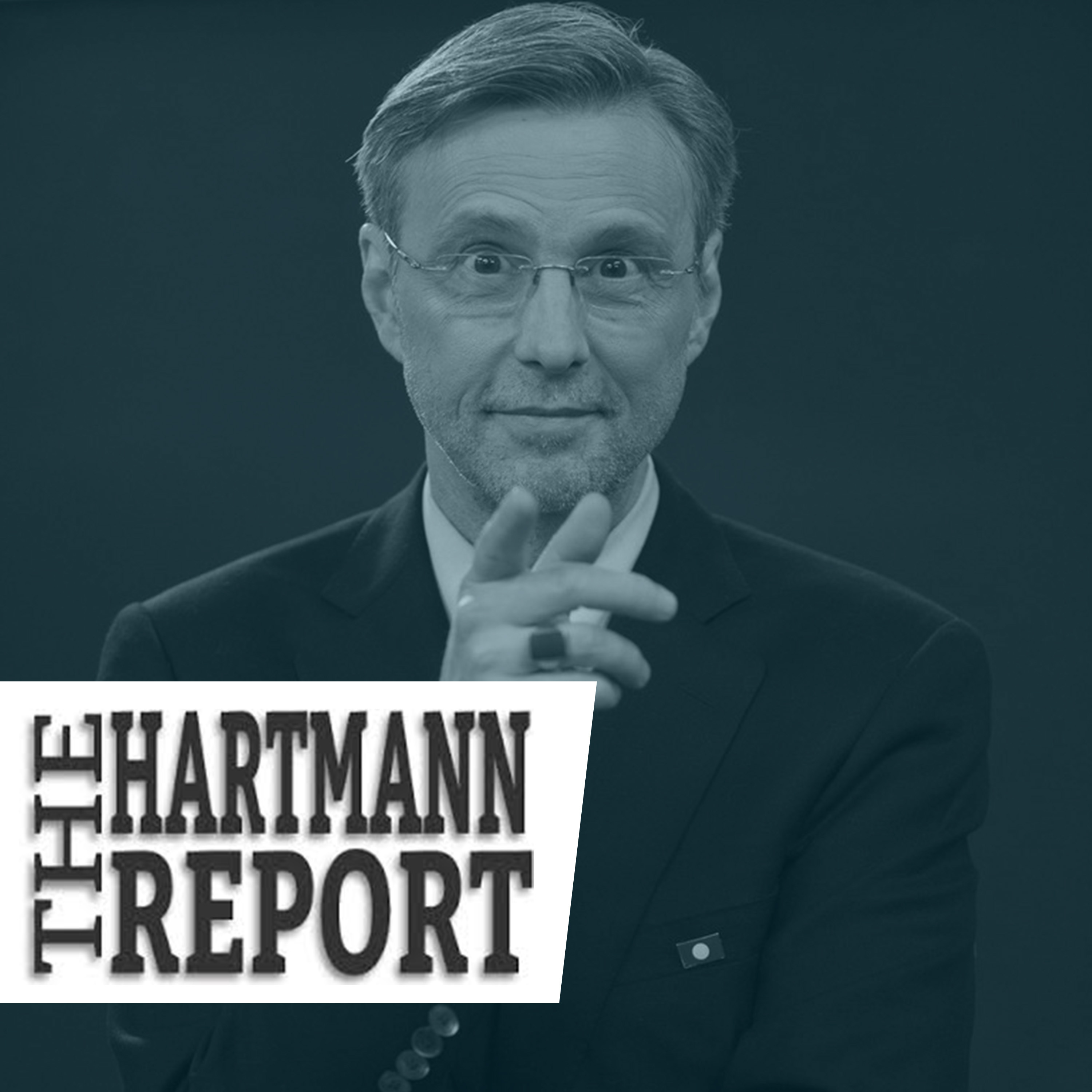
The Hartmann Report
Thom Hartmann
The Glenn Show
Glenn Loury
#RolandMartinUnfiltered
Roland S. Martin
Newt's World
Gingrich 360
Pod Save America
Crooked Media
Ralph Nader Radio Hour
Ralph Nader
Bannon`s War Room
WarRoom.org
Bannon’s War Room
dan fleuette
The Young Turks
TYT Network
The Beat with Ari Melber
Ari Melber, MS NOW
The Damage Report with John Iadarola
TYT Network
The Majority Report with Sam Seder
Sam Seder
The David Pakman Show
David PakmanGet A Grip with Kendall Reusing
Kendall Reusing
Ultimately with R.C. Sproul
Ligonier Ministries
Grace to You: Radio Podcast
John MacArthur
The Briefing with Albert Mohler
R. Albert Mohler, Jr.
StarTalk Radio
Neil deGrasse Tyson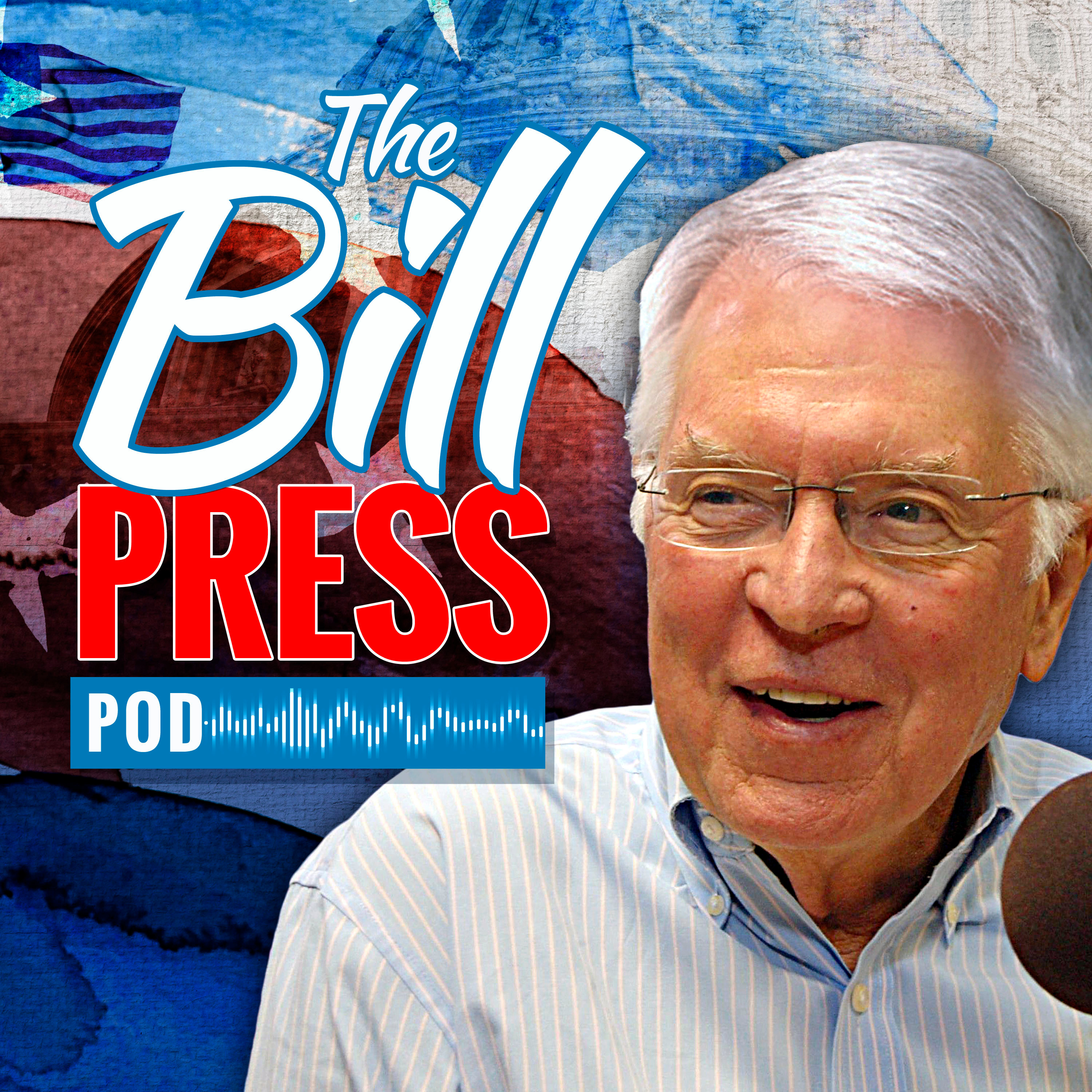
The Bill Press Pod
BP Pods
Ask Pastor John
Desiring God
The Weekly Show with Jon Stewart
Comedy Central
Ask Ligonier
Ligonier Ministries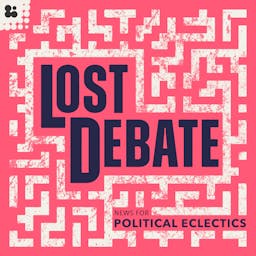
Lost Debate
The Branch
Coffee-Time-Again
Dale Hutchinson
5 Minutes in Church History with Stephen Nichols
Ligonier Ministries
The Ezra Klein Show
New York Times Opinion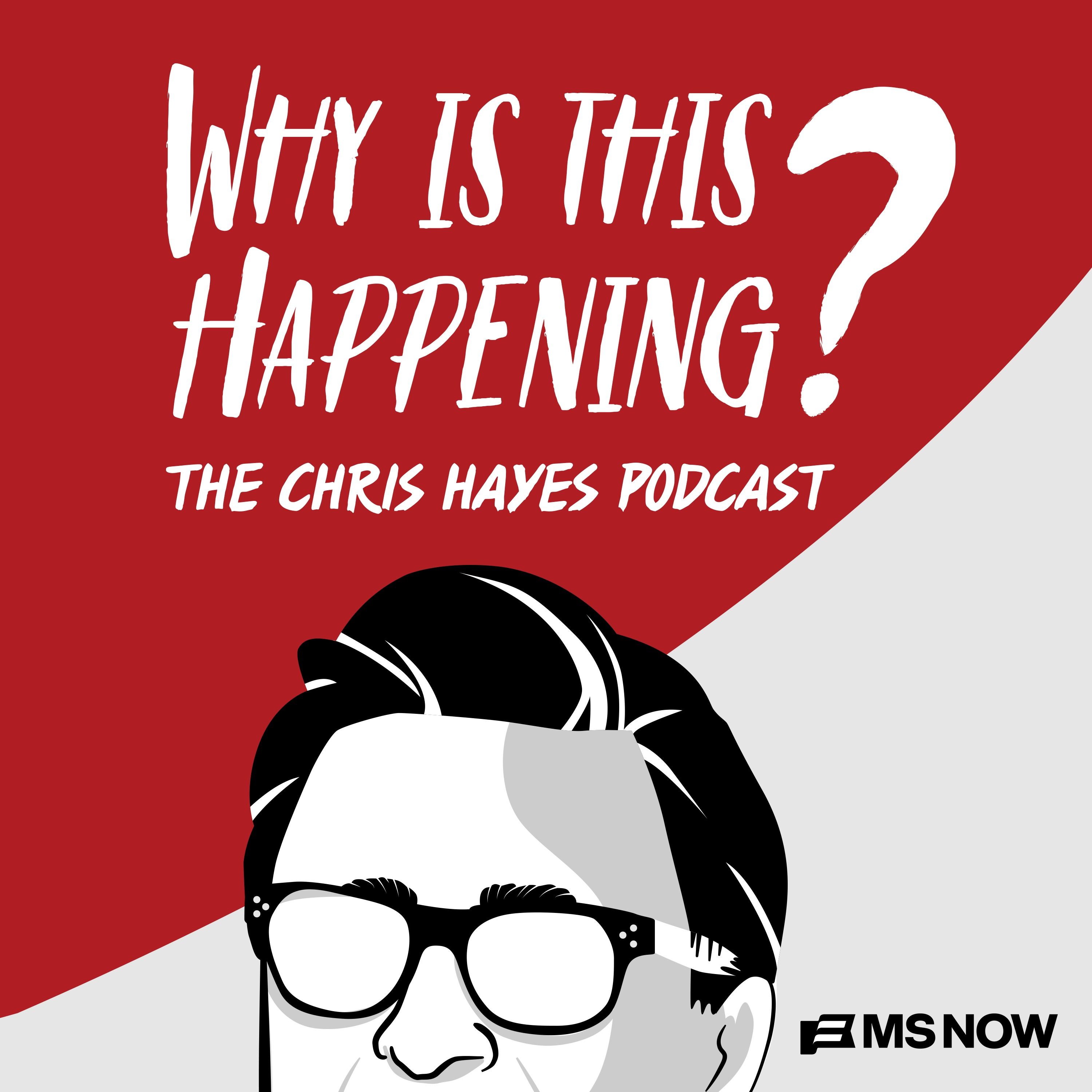
Why Is This Happening? The Chris Hayes Podcast
MS NOW, Chris Hayes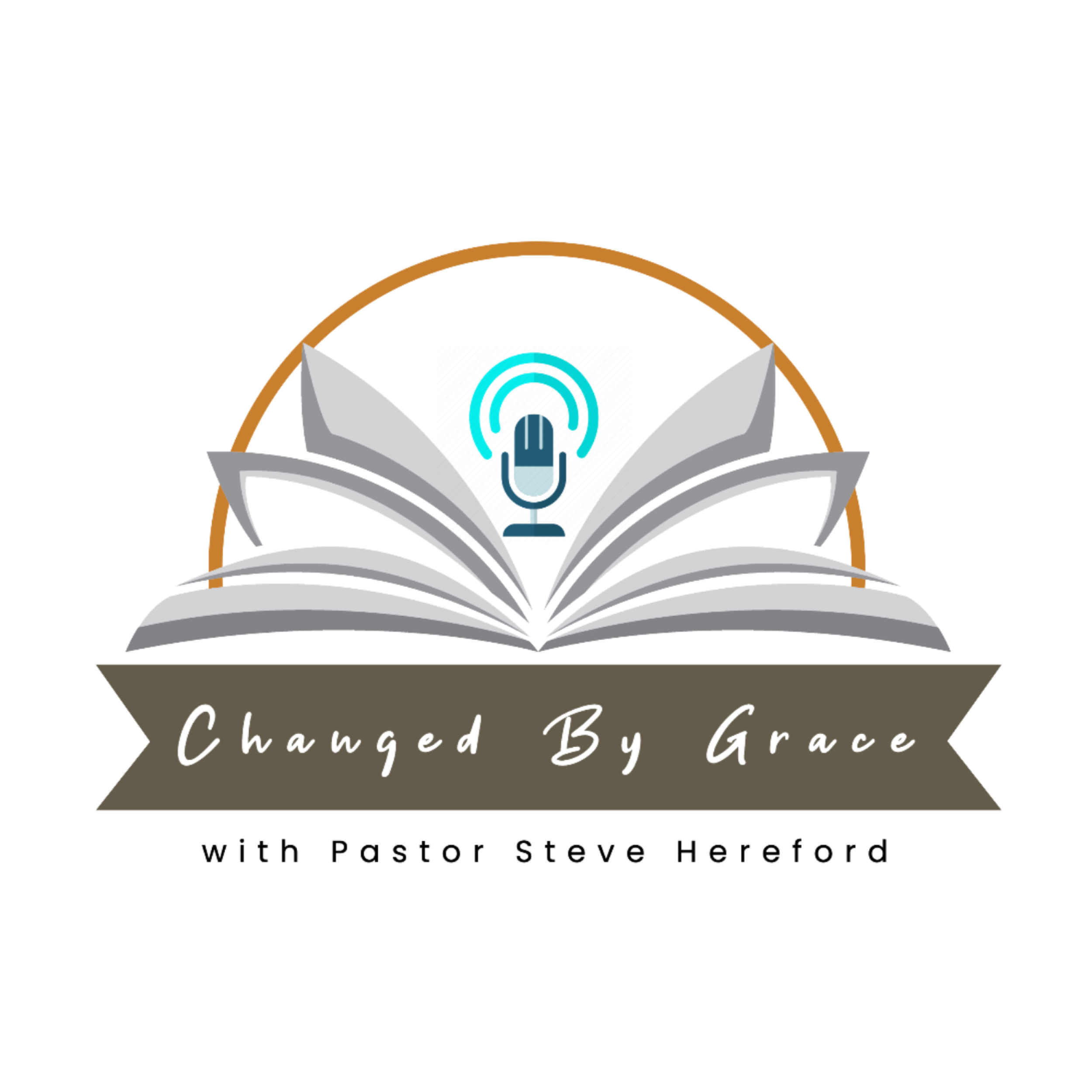
Changed By Grace
PodPoint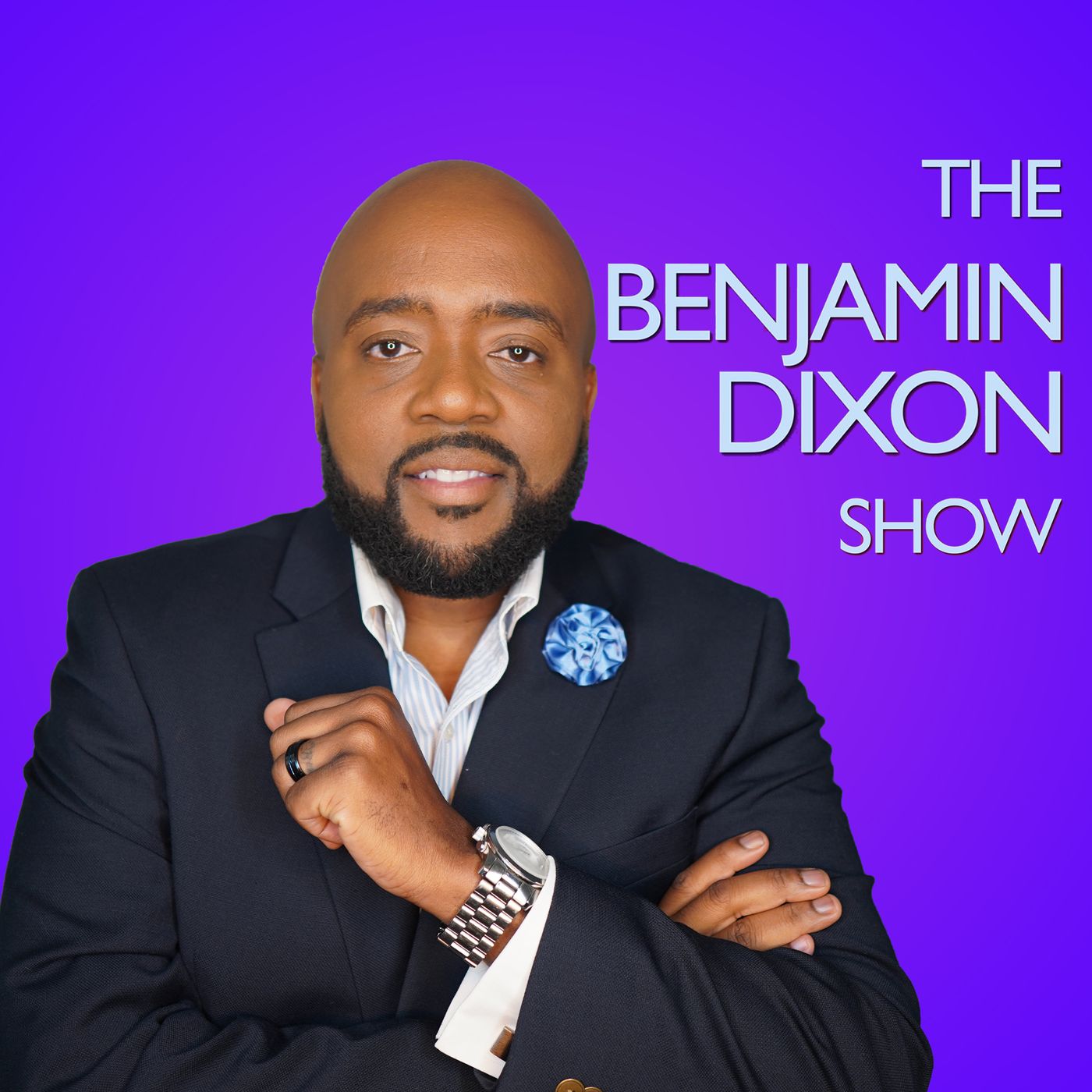
The Benjamin Dixon Show
The Benjamin Dixon Show
Thinking in Public with Albert Mohler
R. Albert Mohler, Jr.
Who Killed JFK?
iHeartPodcastsThe MacArthur Center Podcast
The Master's Seminary
Jean Jacques Machado : No Gi Required
Jay Zeballos
Trauma Bonding
Jamie Kilstein
This Day in History
The HISTORY Channel
The Ben Shapiro Show
The Daily Wire
The Sean Hannity Show
Sean Hannity
Breaking Points with Krystal and Saagar
iHeartPodcasts
The Kyle Kulinski Show
Kyle Kulinski